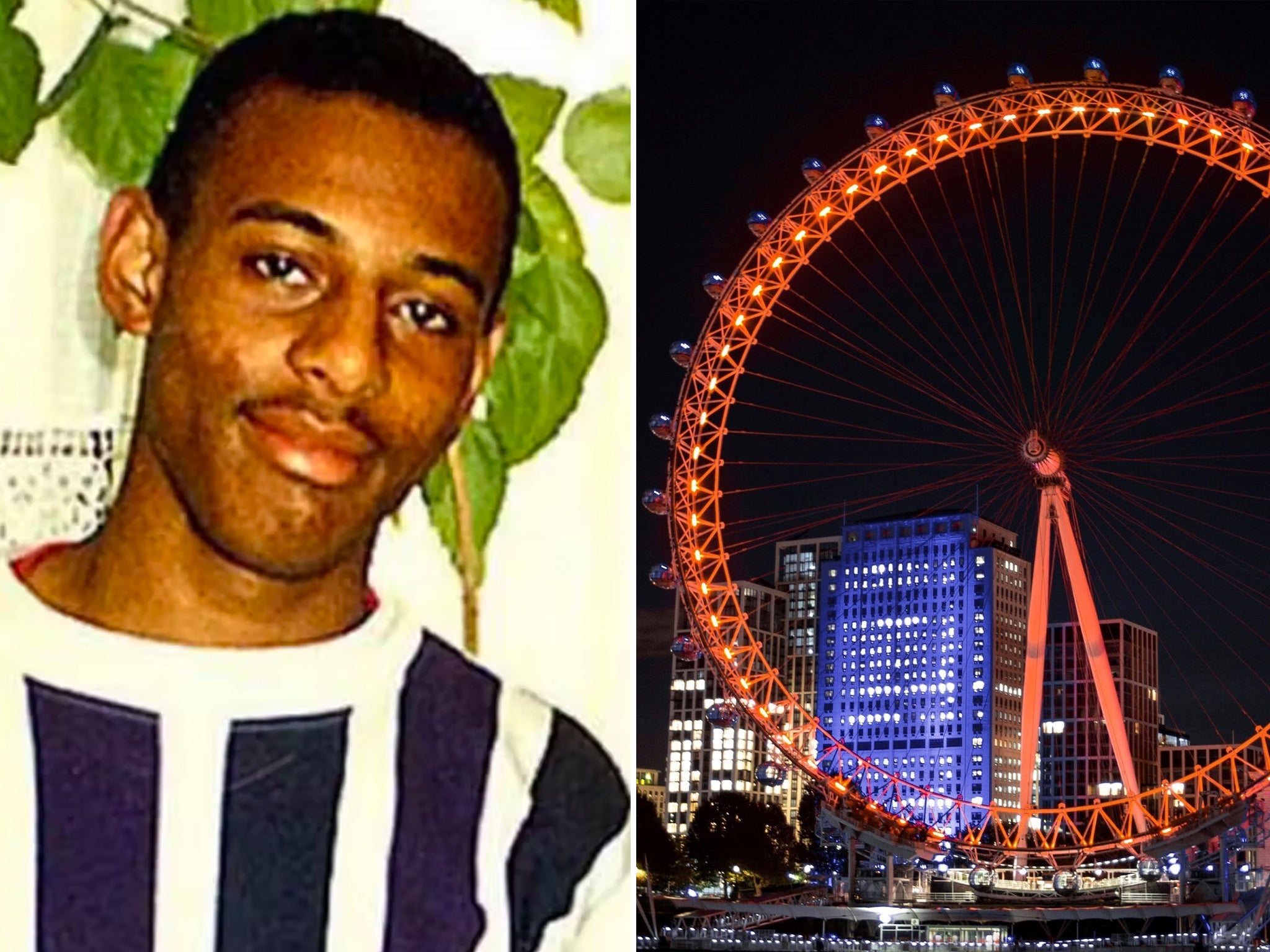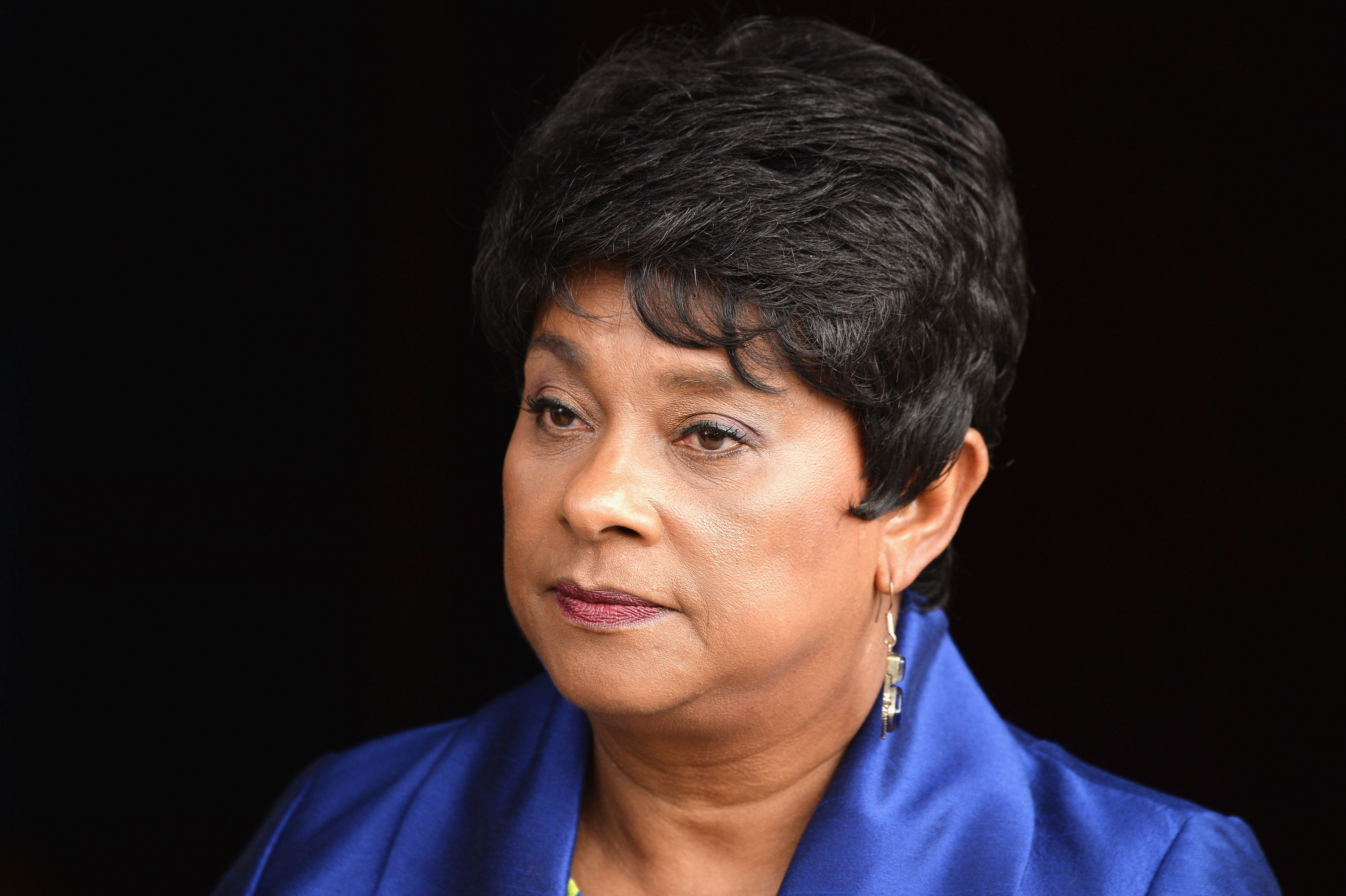Stephen Lawrence: London Eye to be illuminated orange in tribute
Stephen Lawrence Day is marked officially in the British calendar on 22 April, commemorating the anniversary of Stephen’s death.

Your support helps us to tell the story
From reproductive rights to climate change to Big Tech, The Independent is on the ground when the story is developing. Whether it's investigating the financials of Elon Musk's pro-Trump PAC or producing our latest documentary, 'The A Word', which shines a light on the American women fighting for reproductive rights, we know how important it is to parse out the facts from the messaging.
At such a critical moment in US history, we need reporters on the ground. Your donation allows us to keep sending journalists to speak to both sides of the story.
The Independent is trusted by Americans across the entire political spectrum. And unlike many other quality news outlets, we choose not to lock Americans out of our reporting and analysis with paywalls. We believe quality journalism should be available to everyone, paid for by those who can afford it.
Your support makes all the difference.The iconic London Eye will be illuminated orange in memory of Stephen Lawerence, who was murdered on 22 April 1993, at the age of 18, in a racist attack.
The big wheel will transform shade at sunset on Friday at around 8pm.
Stephen Lawrence Day is marked officially in the British calendar on 22 April, commemorating the anniversary of Stephen’s death.
Launched in 2019, the day is an opportunity to celebrate the Londoner’s life, educate young people about the significance of his legacy and highlight the ongoing work of the Stephen Lawrence Day Foundation - the charity founded by Stephen’s mother Baroness Doreen Lawrence two years ago.
Baroness Doreen Lawrence, who sits in the House of Lords as a Labour peer, said: “As Stephen‘s mother, his death continues to be at the forefront of my mind. I hope his continued legacy for change lives on in future generations”
On Friday and throughout the weekend, a programme of events will be taking place organised by the Stephen Lawrence Day Foundation including a morning assembly broadcast live to schools nationwide, hosted by CBeebies presenter Ben Cajee and featuring Baroness Lawrence.
From Friday to Sunday, a pop-up, public exhibition will take place at Brixton Village in south London and feature work by and photo portraits of architecture and law students who have been supported with bursaries and scholarships through the Stephen Lawrence Day Foundation.
The exhibition will be open from 12pm ‒ 8pm on Friday and Saturday; 12pm - 4pm on Sunday.
A pin of solidarity by luxury designer Ralph Lauren will be available online and in select stores from Friday; created by Ralph Lauren’s Black Advisory Council, 100 per cent of the profits from the sale of each pin will be contributed to the Stephen Lawrence Day Foundation to fund scholarship and bursary programs.
The College of Policing will be hosting an internal event of “remembrance, reflection and active learning” run by the National Black Police Association and the National Police Council, attended by senior leaders and community members and live streamed to 47 police forces across the UK.
Stephen Lawrence was born in 1974 and grew up in south-east London, where he lived with his parents Neville and Doreen, his brother Stuart and sister Georgina. He had ambitions to become an architect and wanted to have a positive impact on his community.
Tragically, however, his dream was never realised as he was cut down in his prime by rabid racists who fatally attacked him in Eltham. After the initial police investigation, five suspects were arrested but not convicted, meanwhile officers decided to spy on the Lawrence family during the height of their grief.
A public inquiry into the handling of Stephen’s case was held in 1998, leading to the publication of the Macpherson Report, which has been called “one of the most important moments in the modern history of criminal justice in Britain”,

Leading to profound cultural changes in attitudes to racism, to the law and to police practice, it also paved the way for a greater understanding of discrimination of all forms and new equalities legislation
However, a Home Affairs Committee found in June that unjustified racial disparities in policing including recruitment and use of stop and search remain more than two decades after the landmark Stephen Lawrence Inquiry.
Former prime minister Tony Blair blocked proposals for an ambitious race equality strategy following the inquiry report into the racist killing of the black teenager Stephen Lawrence in south-east London in 1993, newly released government papers revealed in December.
The Home Affairs Committee is calling for “urgent action” to address “persistent, deep-rooted and unjustified racial disparities” in policing, arguing the current system for delivering on race equality is “not working”.
And following an inquiry which it said was not specific to any individual policing institution, the cross-party group of MPs added there has been a “systematic failure on the part of the police service and Government, over many years, to take race inequality in policing seriously enough”.


Join our commenting forum
Join thought-provoking conversations, follow other Independent readers and see their replies
Comments